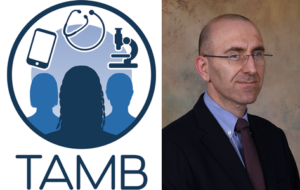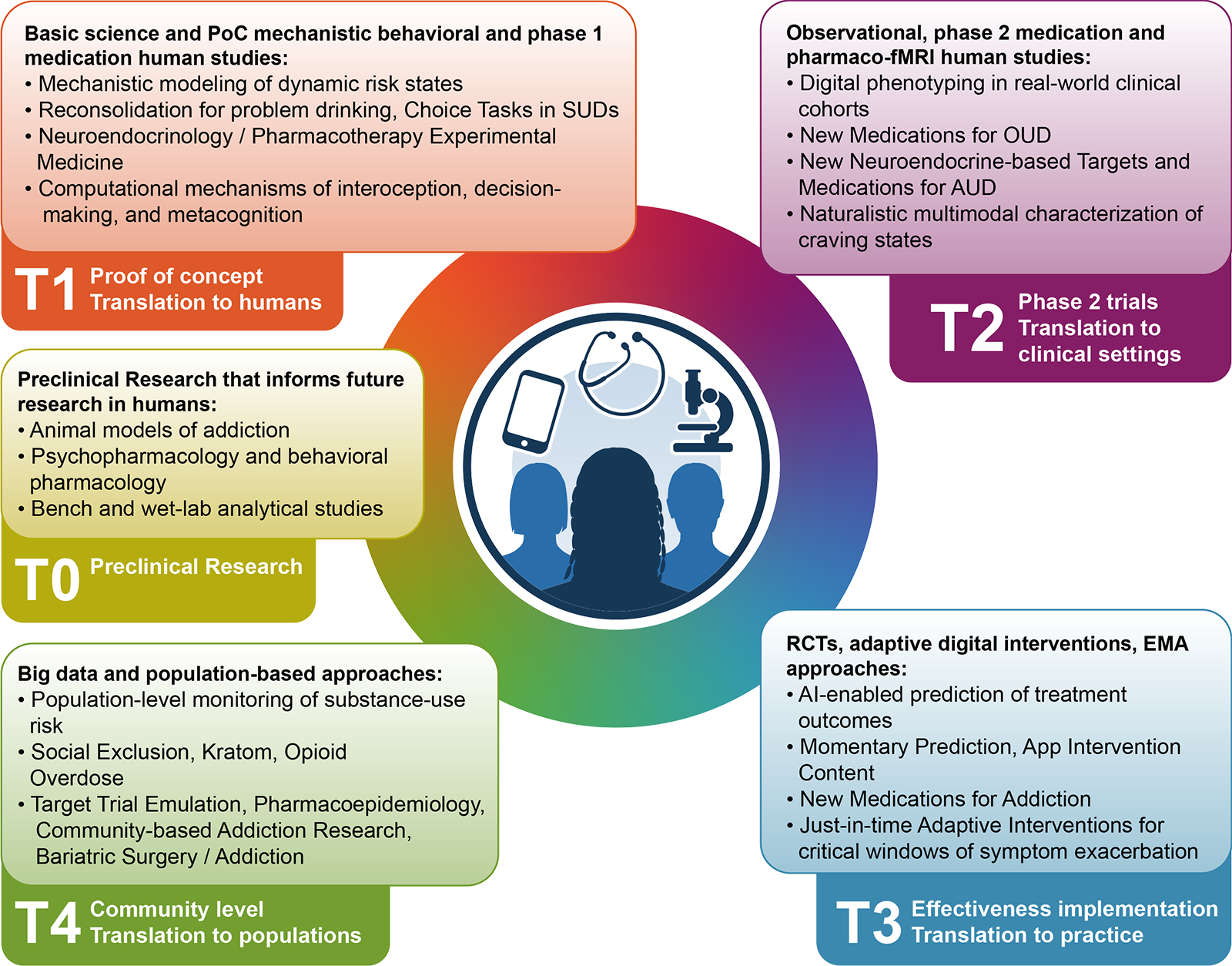Branch Chief
Contact
Location:
Biomedical Research Center
251 Bayview Boulevard
Suite 200, Room 04A515
Baltimore, MD 21224
Phone: 667-312-5188
Email: lorenzo.leggio@nih.gov
TAMB Mission
Founded by Dr. Lorenzo Leggio, the vision for the Translational Addiction Medicine Branch (TAMB) is to build a collaborative group of laboratories that span translational research via diverse approaches and methodologies, serving our collective goal to advance addiction science and medicine. With that in mind, the TAM team is uniquely positioned to achieve this mission, given the diversity of its Investigators/Labs, whose background, skillsets, expertise, and focus are quite distinct, yet complementary and synergistic. The mission of TAMB is to conduct translational clinical studies and execute cutting-edge human research that contributes to the understanding of addiction (e.g., deep, ecological momentary assessment and/or digital phenotyping) and the development of novel treatments (e.g., medications, behavioral interventions, technology-based modalities). Working under one roof, the TAMB team employs diverse approaches and levels of analysis across multiple platforms (wet-lab, animal program, outpatient and inpatient units, big data, and surveys) and study different species (mice, rats, non-human primates, and humans, the latter including both healthy volunteers and patient populations). Together, the TAMB is a patient-driven group of scientists and clinicians with diverse and synergistic backgrounds, ranging from medicine and experimental psychology to neuroscience and health communication. The specific goals of the TAMB team are to:
- Conduct addiction-related translational research – pre-clinical, animal benchwork to humans in clinical research settings, practice and across diverse patient populations
- Develop novel effective addiction treatments and precision medicine approaches, including work on the intersection between addiction, health disparities and with patients with mental health and other medical comorbidities (e.g., liver disease, HIV, HCV, cardiovascular and metabolic disease)
- Identify novel targets and develop new medications toward safe and effective therapies for patients with alcohol and substance use disorders
- Develop innovative treatments that integrate evidenced-based research with novel methods and emerging technology targeting patients with alcohol and substance use disorders
- Translate cutting edge research into novel treatments for addiction using predictive analytics, biosensors, mobile treatments, and personalized medicine
Branch Sections
- Clinical Psychoneuroendocrinology and Neuropsychopharmacology Section
- Technology and Translational Research Section
- Real-world Assessment, Prediction, and Treatment Section
TAMB Vision and Research Portfolio.
AUD: alcohol use disorder; EMA: ecological momentary assessment; fMRI: functional magnetic resonance imaging; OUD: opioid use disorder; PoC: proof-of-concept; RCTs: randomized controlled trials; SUD: substance use disorder


